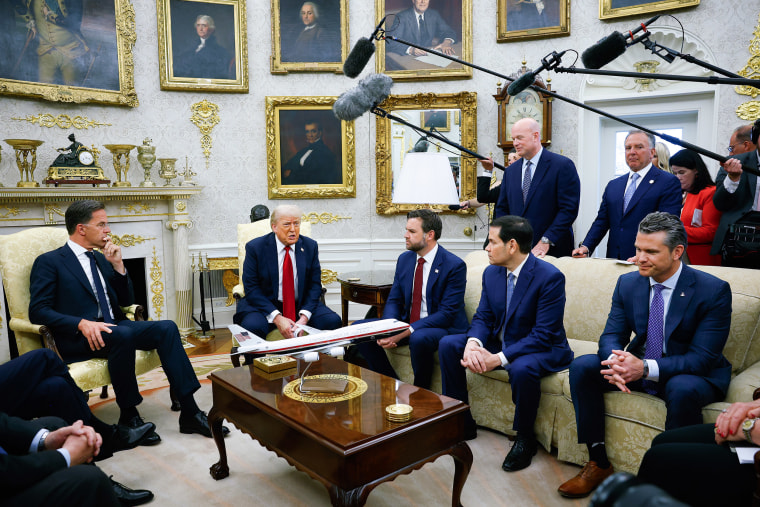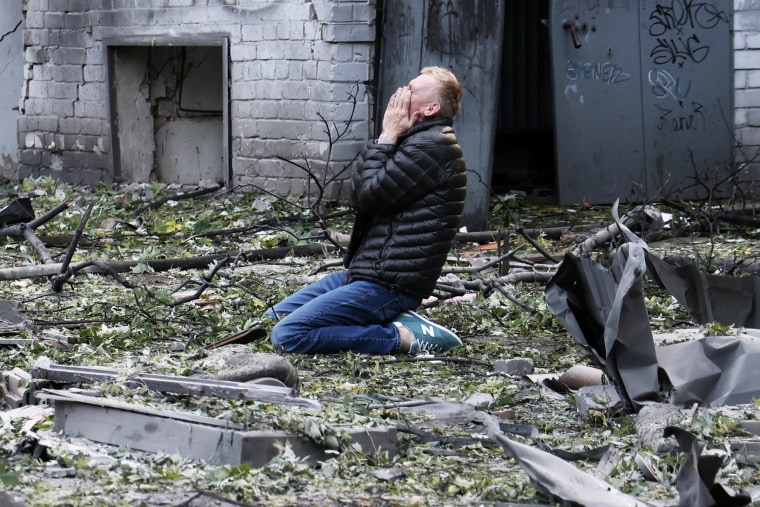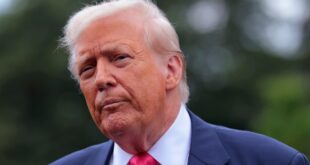
President Donald Trump’s increasing turn against his Russian counterpart Vladimir Putin has inspired hopes in Ukraine and among its supporters that he is starting to believe what they’ve been telling him all along: Moscow is the antagonist and the only way to stop it is with cash and military equipment.
But while Monday’s apparent U-turn was dramatic, other Ukraine supporters, former officials and other foreign policy experts are wary at least and deeply skeptical at worst.
“The question that Europeans and Ukrainians are asking,” according to Ivo Daalder, former United States ambassador to NATO, is “how real is this change? And how lasting is this change? And what does it really mean in terms of American policy toward the region?”
“This is the second time that the Trump administration has moved the goal posts,” having briefly cut off aid to Ukraine in February, he said. “So there are a lot of questions here.”

Trump has previously lavished praise on Putin while scorning Ukrainian President Volodymyr Zelenskyy. But on Monday in the Oval Office, sitting next to NATO Secretary-General Mark Rutte, he said he was “very unhappy” with the Kremlin and that the United States would sell “top-of-the-line weapons” to NATO allies — including the much-demanded Patriot missiles — so that they can be used in Ukraine.
Alongside that, if Putin does not agree to a peace deal in 50 days, Trump said, he will slap 100% tariffs on any country that buys Russian goods. That lag time has been criticized across Europe, with officials and experts asking why Trump is giving additional time to an autocrat who has hardly wavered in his desire to subjugate Ukraine.
The anxiety is fueled further by the widespread perception in Europe and elsewhere that Trump is a president who makes decisions on a whim and is prone to changing them.
Trump himself hinted at this propensity to change his mind quickly. He recalled going home one night and telling first lady Melania Trump, “‘I spoke to Vladimir today. We had a wonderful conversation.’” To which she responded, “‘Oh, really, another city was just hit’” in Ukraine by Russia’s missiles.
The exact details of Trump’s new direction are as yet unclear.
He said that the shopping list included Patriot missiles, the state-of-the-art American defensive system that Ukraine says it desperately needs to fend off Russia’s nearly nightly aerial assaults.
European NATO allies were going to buy “billions of dollars worth of military equipment” from the U.S. “and that’s going to be quickly distributed to the battlefield” in Ukraine, he added.
The Patriot missiles could arrive in Ukraine “very soon — within days, actually,” expedited by European nations giving their existing weapons to Ukraine and replacing them with the new systems delivered by the U.S., he said.
“This is really big,” said Rutte, a man who often heaps praise on Trump. “It will mean that Ukraine can get its hands on really massive numbers of military equipment, both for air defense, but also missiles, ammunition, etc.” He added, “if I’m Ukraine, I think this is really great news.”
Zelenskyy, who has clashed several times with Trump and his team, posted on X thanking the president “for the willingness to support Ukraine and to continue working together to stop the killings and establish a lasting and just peace.”

Other endorsements came with caveats.
The U.S. has “realized that Russia does not really want peace, so in order to have peace, we need to support Ukraine and we need to put the pressure on Russia,” Kaja Kallas, the European Union’s foreign policy chief, told reporters in Brussels on Tuesday.
However she suggested that waiting almost two months to impose tariffs was too long: “Fifty days is a very long time if we see that they are killing innocent civilians every day.”
That’s a view also held by Yuriy Boyechko, CEO and founder of Hope for Ukraine, a nonprofit organization based in Portland, Oregon, that supports Ukrainian refugees in the U.S.
“This is way too long,” he said. “Unless significant pressure is applied on Putin and the Russian economy immediately, more innocent civilians will die.”
Russian officials mixed grave condemnation with mockery.
Kremlin spokesman Dmitry Peskov called Trump’s statements “very serious” because it was “addressed personally to President Putin.” Whereas former Russian President Dmitry Medvedev called it a “theatrical ultimatum” about which “Russia didn’t care.”
A senior Kremlin official told NBC News that Putin may not rush to respond. “We need to analyze the situation,” he said. “It might take some time.”
Ultimately, the optimism of Ukraine’s supporters will be dictated by what’s actually in Trump’s weapons deal — and whether he sticks with his renewed direction of thinking on the conflict.
“We need to be a bit cautious as to whether this is a sea change in Trump’s opinion or if it’s just another part of a whiplash effect as he veers backwards and forwards,” Matthew Savill, , director of military sciences at London’s Royal United Services Institute think tank, told NBC News’ British partner, Sky News. “His overriding goal is to get credit for ending the fighting.”
 Latest World Breaking News Online News Portal
Latest World Breaking News Online News Portal






